

JUSTICE MANDOKHEL QUESTIONS LEGITIMACY OF MILITARY TRIAL OF CIVILIANS
ISLAMABAD
S TA F F R E P O R T
SU P R E M E Court (SC) Justice Jamal Khan Mandokhel on Thursday raised concerns over the legitimacy of trying civilians under the armed forces’ disciplinary framework
His remarks came as the court heard the intra-court appeals against military courts decisions
The case was heard by a seven-member constitutional bench, led by Justice Aminuddin Khan
The bench included Justices Jamal Khan Mandokhel Muhammad Ali Mazhar, Syed Hasan Azhar Rizvi, Naeem Akhtar Afghan, Musarrat Hilali, and Shahid Bilal Hassan, who collectively examined the validity of military court proceedings involving civilians During the hearing federal government lawyer Khawaja Haris argued that the military courts case had two parts: one declaring sections of the Army Act null and void, and the other regarding the custody of the accused in military courts
Justice Mohammad Ali Mazhar asked Did the five-member bench declare the provisions of the Army Act in conflict with Article 8 (fundamental rights of citizens)? What justification was provided in the decision for the Army Act provisions being in conflict with Article 8?”
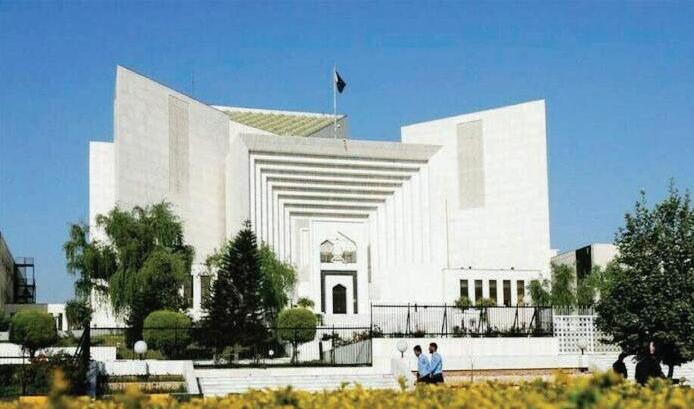
Justice Jamal Mandokhel remarked that the entire case concerning military courts revolves around Article 8, stating, “How can a person not in the armed forces be brought under its discipline?”
Khawaja Haris responded by asserting that if the law permits discipline will apply Justice Jamal Mandokhel explained that a person in the Army will be subject to military discipline, a person in the Agriculture Department will follow its discipline and if a person is not in any department how can military discipline be applied to them? Is it not a violation of Article 8 to subject an unrelated person to military discipline and strip them of their fundamental rights?
Khawaja Haris argued that in specific situations, civilians can also be subjected to the Army Act, and fair trial provisions (Article 10A) exist even in military trials Justice Mohammad Ali Mazhar mentioned that in the cases of FB Ali and Sheikh Riaz Ali, the Army Act provisions were declared void by four judges Khawaja Haris raised the point that the court did not have the authority to nullify the Army Act provisions Justice Jamal Mandokhel remarked that under such circumstances if anyone were to provoke could the Army Act be applied to them? Has the Army Act rendered sections of Article 8 of the Consti-
tution ineffective? He added If the President s House is attacked the trial would take place in an anti-terrorism court But if Army property is attacked, the trial would be in a military court ” Khawaja Haris responded that this decision was made by the legislators through lawmaking Justice Jamal Mandokhel questioned If a soldier kills his officer where will the case be tried? Khawaja Haris replied that
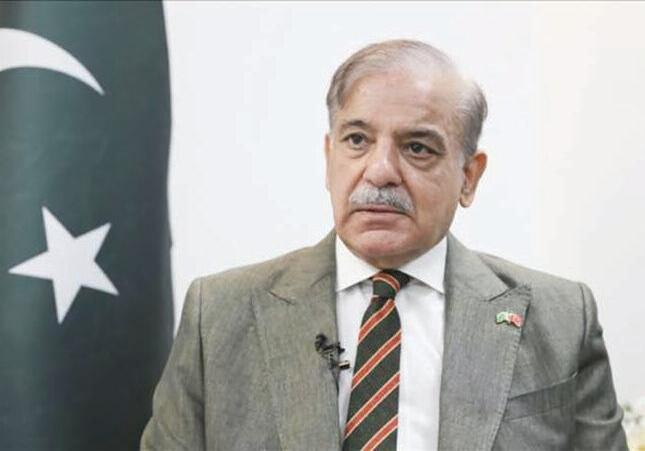
accepting such an arrangement would disregard the democratic principles that form the foundation of Pakistan s political system Waqas emphasized that PTI had won a peaceful revolution on February 8 with a landslide victory, only to see that mandate stolen through what he described as a “midnight polls heist ” He stressed that the stolen mandate represented the true will of the people and must be restored in order to uphold democracy
The PTI leader made it clear that the party would not be a part of any government that ignored the people s vote He further criticized those promoting the idea of a national government, stating that they had no connection to PTI and that such a proposal was not only impractical but an insult to the public mandate Waqas reiterated PTI s commitment to democratic principles emphasizing that the party would not compromise on the right of the people to elect their representatives He urged the current government to respect the people s mandate and relinquish power to its rightful owners On the matter of talks with the government Waqas categorically denied any formal negotiations between PTI and the ruling coalition While PTI founder Imran Khan had previously expressed a willingness for peaceful dialogue and had even set up a five-member committee for talks, Waqas stated that no formal discussions had been initiated by the government He stressed that PTI would never “beg” for talks and that the government needed to create an environment conducive to negotiations Under the current conditions Waqas argued any dialogue would be futile He also condemned the government s violent tactics in dismantling PTI, particularly in Punjab and Balochistan, where he claimed PTI workers and their families faced persecution Waqas called out the government’s harsh actions including raids on homes detentions and intimidation of supporters He labeled these actions as human rights violations and accused the government of acting with fascist tendencies
The Senate on Thursday passed a resolution unanimously, condemning Israel’s bombardment extending to many countries The resolution was moved by Sherry Rehman on behalf of all parties in the House The Senate of Pakistan, observing the grave and continuing violations of international law by Israel expresses its profound concern over the systemic exercise of impunity by Israel in its actions against Palestine, the resolution said The Senate noted with alarm the exploitation of the political vacuum caused by regime collapse in Syria which Israel is using to advance its unilateral agenda This agenda now extends beyond Palestine to violations of the
sovereignty of Syria and many other countries, it added
The Senate called for immediate accountability for these actions which many in the international community have condemned as war crimes
The Senate strongly condemned the killing of United Nations Relief and Works Agency (UNRWA) team members on October 7, 2023 As of the end of November 2024 249 UNRWA staff members have lost their lives as a result of Israeli actions
Such attacks are a blatant violation of United Nations General Assembly Resolution 302; which mandates UNRWA’s role in providing critical humanitarian assistance to vulnerable populations the resolution said
The Senate further condemned Israel s recent legislative measures aimed at undermining
ISLAMABAD
A special court on Thursday indicted Pakistan Tehreek-e-Insaf (PTI) founder Imran Khan and his wife, Bushra Bibi, in the Toshakhana-II case
The couple appeared before Judge Shah Rukh Arjumand in Adiala Jail where the charges were read out and the hearing was adjourned until December 18
The couple’s appearances in court come after multiple absences by Bushra Bibi which had led to the issuance of arrest warrants
It may be recalled that on December 9, her arrest warrants were canceled, and the proceedings were allowed to move forward
During the session defence lawyer Salman Safdar had argued that legal procedure required a seven-day window to review the prosecution s report before an indictment could occur
The Toshakhana-II case involves allegations of misappropriation of gifts a matter that has drawn significant public attention due to its implications for the former prime minister and his wife
The prosecution however pushed for an immediate indictment citing that the accused already had access to all relevant documents and pointing to Bushra Bibi s re-
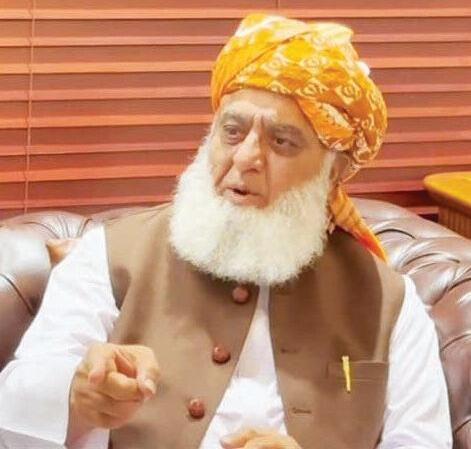
the mandate of UNRWA which provided essential humanitarian aid in the West Bank, Gaza, Jordan and Syria
This move will severely impact access to health education and vital services for Palestinian refugees and threatens the right of return for Palestinian refugees, as enshrined in international law, it said
“The Senate also notes the humanitarian toll of Israel actions
Since the start of the current onslaught 44 612 Palestinians have been martyred and 105,834 injured, including women and children,” the resolution said
The Senate condemned the targeted killing of over 180 journalists during Israeli bombings in Gaza and the deliberate destruction of critical infrastructure including hospitals, schools, and residential areas
peated absences from hearings
Bushra Bibi had assured the court that she would attend all future hearings explaining that her earlier absences were due to illness and other legal obligations, and that she would not miss further proceedings
The court had initially set December 12 as the date for the indictment which was brought forward after arguments from both parties
In a separate development, PTI leaders Shah Mehmood Qureshi and Yasmin Rashid were also indicted on Thursday for their alleged involvement in the unrest during the May 9 protests in Lahore Senate

Banking sector’s aDr increases to 47.8%, nearing year-enD goal
as new CEO and President
’s is set to be sold, and it ’s staying in family

frontline workers, predominantly women, playing a crucial role in ensuring the Polio Programme’s outreach
“The challenges faced in 2024 have underscored the critical need to accelerate our efforts to eradicate polio With Japan s
continued support we are further strengthened to intensify our efforts aiming to achieve zero polio cases by mid2025 under the leadership of the Prime Minister, Muhammad Shehbaz Sharif, stated Prime Minister Focal Person on Polio Eradication Ms Ayesha Raza Farooq “The unwavering support of the Government of Japan has been instrumental in helping us get closer to reaching zero cases We are thankful to the Government and people of Japan for their continued support towards polio eradication in Pakistan,” Ms Ayesha Raza Farooq added Mr TAKANO Shuichi Charge d’ Affaires ad interim of Japan to the Pakistan said Japan has supported Pakistan to eradicate polio for nearly 30 years despite hindrance such as floods, COVID, and terrorist attacks
“Since this year marks the 70th anniversary of Japan’s ODA to Pakistan we would like to renew our commitment to continue to promote routine immunization including polio vaccination in Pakistan
The new funding is part of the continuous support from the Government of Japan to the Polio Eradication programme since 1996
WSSIP-2 aims to enhance Karachi ’s water supply, sanitation ser vices, and operational efficienc y


COMMENT
Talking about talks
The PTI must realize that ultimately matters will be settled by talks
IT is a sign of how far things have gone that a former National Assembly Speaker calling on the present incumbent to offer condolences on the latter ’s sister ’s death should cause a stir in political circles Instead of being a matter of routine, it was being examined to see if it was any sort of icebreaker That might reflect not just the anxiety of all those making up the political milieu, but also their consensus, that the present political impasse can only be broken if there are result-oriented talks However, in the initial encounter, between former Speaker Asad Qaiser and incumbent Ayaz Sadiiq the declaration by the former that PTI founder Chairman Imran Khan must give permission indicates where the problem lies This condition is based on previous exercises and reflects both the hounding of opponents when the PTI was in office and its constant sniping when out Mr Khan’s last position just before the November 24 protest in Islamabad was that talks were only to be held with powerful quarters not with a government that was merely a puppet Indeed it is Mr Khan’s adamancy against talking to those whom he and his followers call looters and plunderers that converted what should hve been a routine meeting into a political tremor if not a small earthquake
There is much to talk about Perhaps moer crucial than the cases against Mr Khan nd his release is the matter of the victims of the November 24 protests The PTI on the same day as the meeting said 12 of its workers had been killed through a point of order by Leader of the Opposition Umar Ayub There had been earlier a claim of 178 The government insists there were none insisting on a body a funeral or a mourning family to show that anyone had been killed The PTI insists that evidence was whisked way but has apparently reduced the number Apart from the release of Mr Khan and other PTI detenus there is also the issue of the alleged rigging of the February election
The PML(N) government is composed of figures used to dialogue who have practised this particular one of the political arts at many junctures Its readiness will be to talk to the PTI The latter might have to watch out because they are pulled away from this path both by their base and by those forces which do not want politicians to talk to each other However the PTI should realize that even wars end with talks

Dedicated to the legac y of late Hameed Nizami Arif Nizami (Late) Founding Editor
M A Niazi Editor Pakistan Today Babar Nizami Editor Profit
Ghosts of the past
TH E imposition of martial law
poses Martial Law, and appoints the commanderin-chief as head of the government That takeover by two people can be seen in Egypt in 1952 when Maj Gen Muhammad Naguib and Col Gmal Abdel Nasser jointly led the Free Officers in overthrowing King Farouk and the government However it
Egypt s first President, he was made to resign and Nasser took over That is strikingly similar to what happened in Pakistan in 1958 when it was President Iskander Mirza who declared Martial Law and appointed Gen Ayub Khan who was both Commander-inChief, a post he had held since 1951, and Defence Minister, Chief Martial Law Administrator However, in two weeks, Ayub made Mirza resign Mirza, like Naguib, was his country’s first president, but unlike Naguib was exiled Naguib was placed under house arrest after he resigned where he remained until his death in 1984 It is odd that Mirza had reached the rank of major general, though he had transferred to the Indian Political Service after six years of regimental soldiering in 1926, while still a lieutenant Naguib had served in the Royal Guard and had commanded the Egyptian mechanized infantry in the Sinai during the 1948 War At the time of the 1952 coup he had become a major general and was commanding the Egyptian Military Academy The first South Korean coupmaker, Park Chung Hee, was also a major general when he carried out the coup in 1961, being the Director General of Army Operations He acted alone though he had to get the Chief of Army Staff on board The COAS Gen Chang Do-Yong whom he first had made chairman of the revolutionary council but whom he ultimately removed Like Pakistan, South Korea had experience of other coups Park Chung Hee himself was removed by a coup, involving his assassination, in 1979 He was assassinated by the head of the KCIA However his Constitution was followed and the PM Choi Kyuh-ha became acting President and then President for the rest of Park s term However the real power lay with Maj Gen Chun Doo Hwan, who was the head of the Army Defence Security Command Chun was then elected President He com-
pleted a six-year term in 1988 and was replaced by Roh Tae Woo who had been a major general at the time of the 1979 coup, but who was elected in 1988 It should not be forgotten that the Korean martial law ia constitutionally provided for, and is more like an emergency in Pakistan That is why there are two aspects unfamiliar to Pakistani eyes The first is the possibility of Parliament disapproving the martial law as happened in this case When martial law has been declared in Pakistan, even if Parliament was to meet, any resolution it passed would not carry much weight Under the South Korean Constitution, however, it is binding It should not be forgotten that the South Korean Constitution provides for martial law; in Pakistan it is a subversion of the Constitution and thus high treason Another thing is that the martial law does not
bered that a declaration of emergency, whether nationally or
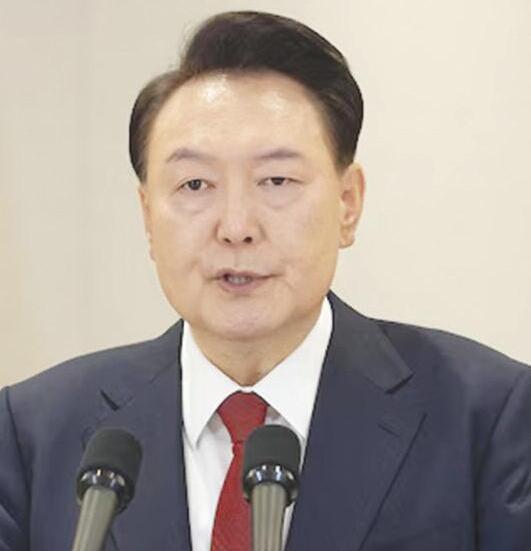
However, the recent episode shows that democracy is still fragile there , much as Pakistan is Both countries show there is much ground to cover
Bangladesh faces threats of civil war
launch targeted operations aimed at capturing the fugitives and dismantling their networks


BN G L A D E S H a nation lauded for its steady economic growth and social advancements, finds itself at a critical crossroads The July uprising has ushered the country towards new hope to build a discrimination-free society But on July 19 a meticulously orchestrated jailbreak saw over 2 241 inmates including 88 on death row escape from prisons across the country, including the high-security facility Among the escapees were militants affiliated with extremist groups such as Jamaatul-Mujahideen
militant activities has heightened tensions between the two neighbours India s increasing vigilance reflects its apprehension about the potential for spillover effects Furthermore
t
could destabilize the entire region complicating efforts to maintain peace and security in South Asia
The effort to destabilize Bangladesh appears to be driven by a complex interplay of motives, encompassing both individual and ideological objectives For many of the escapees creating chaos serves as a strategy to avoid rear rest By fostering an environment of anarchy they divert law enforcement resources and attention, making it harder for the authorities to track them down
Protecting vulnerable communities is another essential task Militants often target minorities and religious organizations to incite fear and chaos, and the armed forces must take proactive measures to safeguard these groups In the event of prolonged political instability, the military may also need to step in as a stabilizing force
It has become evident that the interim government led by Yunus was unable to effectively manage the prevailing circumstances In such a scenario, it may be essential for the Bangladesh Armed Forces to intervene decisively in state affairs to prevent the nation from descending further into chaos and anarchy
On the international front Donald Trump s strategy toward Bangladesh could significantly influence the country s future Known for his hardline policies, Trump may consider imposing punitive tariffs on Bangladesh’s exports, particularly in the lucrative textile sector, as a response to the ongoing atrocities towards minorities Such measures would severely impact the nation s economy which is already under strain
Rights vs. Ruin
T H
under the influence of Donald Trump’s strategic priorities adds further complexity
The events of July 19 marked a watershed moment in Bangladesh s recent history The escape of over 826 prisoners, including nine militants, was part of a broader coordinated attack that targeted not only prison facilities
Ideologically, extremist groups see instability as an opportunity to propagate their radical agendas In a nation grappling with disorder they can recruit followers train militants and expand their operations with relative ease For criminal gangs, instability is a means of survival In the absence of effective law enforcement, these groups can continue their illegal activities, from drug trafficking to extortion without fear of consequences Moreover political and social upheaval provides a fertile ground for extremism threatening to turn Bangladesh into a hotbed of radical activity with far-reaching implications Unfortunately, these all are now common day-to-day issues in Bangladesh In the face of these mounting challenges the role of Bangladesh’s armed forces is crucial
As protectors of the nation s sovereignty they must act decisively to restore order and prevent further deterioration of the security situation
Securing the country s borders is a vital first step to prevent the escapees from fleeing into neighbouring countries and to stop any cross-border movement of militants Within the country the armed forces need to collaborate closely with law enforcement agencies to
Additionally Trump could target key figures in Bangladesh s interim government, including members of the civil-military administration, with sanctions These punitive actions would further isolate Bangladesh on the global stage complicating its efforts to restore stability
However Trump s administration may also extend conditional support to Bangladesh if the armed forces take decisive steps to combat militancy and restore order This support would likely be contingent on aligning with US interests in countering extremism and maintaining regional stability
Bangladesh stands at a perilous juncture grappling with an unprecedented security crisis in the aftermath of the July 19 jailbreak The escape of over 2,241 inmates, including militants and top criminals, has exposed deep vulnerabilities in the nation’s security apparatus and highlighted the urgent need for action
The stakes are high and the consequences of inaction could be catastrophic Only through the decisive and patriotic intervention of the Armed Forces can Bangladesh hope to navigate this crisis and emerge stronger on the other side
The writer can be reached at: writetomahossain@gmail com
The stakes are high, and the consequences of inaction could be catastrophic Only through the decisive and patriotic intervention of the Armed Forces can Bangladesh hope to navigate this crisis and emerge stronger on the
people into complete confusion
The heart of the capital was at a standstill, with traffic jams stretching as far as the eye could see The decision to suspend internet service a lifeline for businesses students and professionals added fuel to the fire Students already struggling with their academic challenges were left twiddling their thumbs as their institutions had shut their doors
One cannot help but wonder if this is the price of democracy Political protests are, indeed, a democratic right, but when these demonstrations violate the basic rights of the people, they become less about justice and more about chaos Why should the common man pay the price for these ongoing political games? Islamabad s residents are tired of being the sacrificial lamb in every political issue Political parties must understand that winning hearts and minds is achieved not by bringing life to a standstill, but by acting with reason and responsibility Let us not allow the federal capital to become a hotbed of political unrest The nation looks to the capital for leadership and guidance not upheavals
Fathers, not wives
F O R far too long, married women have been burdened with the task of ‘fixing’ their men This toxic mindset keeps the cycle of injustice alive The responsibility of reforming men instilling values, curbing destructive behaviours, and teaching accountability erodes the foundation of balanced and mutual partnerships In a society like ours, the worth of a woman is often linked to her ability to manage heal and ‘correct’ a man’s failings
Marriage should be a partnership built on mutual respect, shared responsibilities, and personal accountability, not a means of absolving men of the consequences of their actions
A woman is not a vessel for absorbing and transforming someone else s irresponsibility, nor should she be made to suffer the consequences of a man s lack of upbringing
As opposed to encouraging women to marry in the hope of ‘fixing’ flawed men parents should focus on raising men to be responsible, respectful and emotionally mature individuals from the start We must stop normalising the idea that women should bear the brunt of undoing years of neglectful parenting or societal complacency To challenge these outdated and prevalent expectations, we need extensive dialogue on gender roles and relationship dynamics, backed by concrete policy changes that promote gender equality in all spheres Families too must nurture an environment where both boys and girls are equally encouraged to grow into mature, responsible adults Women, we must remember, are not rehabilitation centres , nor should they be expected to
M A HossAIN
Causes, impacts and status

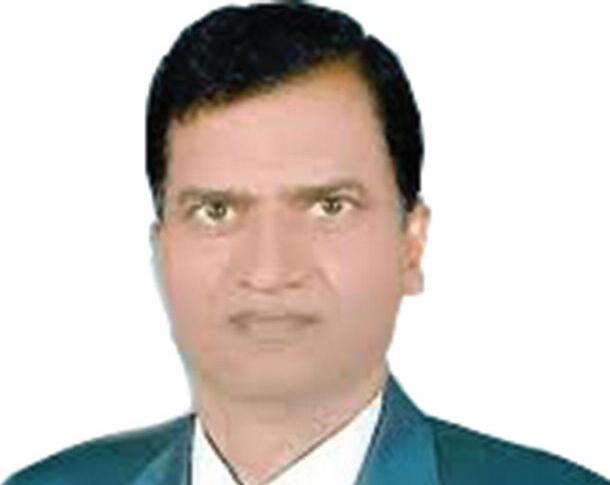
TACCESS TO TECHNOLOGY:
INFRASTRUCTURE: In many parts of the world, particularly in rural and low-income areas, internet infrastructure is limited Women especially in these regions may have less access to devices like smartphones or computers
AFFORDABILITY:
CULTURAL AND SOCIAL BARRIERS: In some societies gender norms and restrictions limit women s ability to use technology There may be social resistance to women accessing digital resources, especially in patriarchal settings
DIGITAL LITERACY:
EDUCATION GAP: In many regions women have less access to education, which limits their ability to develop the skills needed to navigate the digital world This affects their ability to use the internet for personal growth professional development or access to essential services
TRAINING OPPORTUNITIES: Digital literacy programs may not be widely available or accessible to women When such programs do exist cultural norms may still prevent women from participating
ONLINE SAFETY AND HARASSMENT:
CYBER HARASSMENT: Women are often targeting of online abuse harassment and gender-based violence which can deter them from fully participating in digital spaces In extreme cases, this has led to women withdrawing from social media or avoiding online activities altogether
PRIVACY CONCERNS: Women may face higher risks regarding digital privacy and security especially in regions where laws protecting online safety are weak or where women s personal freedoms are restricted
ECONOMIC OPPORTUNITIES:
JOB MARKET DISPARITIES: The digital divide can limit women s access to remote work opportunities, entrepreneurship, and the gig economy, where digital tools are increasingly necessary Lack of access to technology widens the gender gap in economic opportunities
FINANCIAL INDEPENDENCE: Digital banking mobile payment services and other financial technologies offer opportunities for women to gain financial independence, but only if they have access to and understanding of these tools
SOCIAL CONNECTIONS: For women who are isolated due to cultural social or geographical reasons, the internet can be a powerful tool for building social networks, but only if they have access Women’s poor performance in bridging the digital divide is not a reflection of their capabilities but rather a result of systemic barriers and inequalities that disproportionately affect women especially in developing regions
LIMITED ACCESS TO TECHNOLOGY:
INFRASTRUCTURE GAPS: In many rural and underdeveloped areas internet access and electricity are limited and this disproportionately affects women Even when infrastructure is available, men are often prioritized for access to digital devices like
computers and smartphones
AFFORDABILITY: Women in low-income households may not have the financial means to purchase digital devices or pay for internet services The Global System for Mobile Communications (GSMA) has highlighted that affordability remains a key barrier especially in regions like Sub-Saharan Africa and South Asia where women earn less than men and are more likely to live in poverty
LOWER DIGITAL LITERACY:
EDUCATIONAL DISPARITIES: Women particularly in developing regions are less likely to receive formal education which directly impacts their digital literacy skills According to the World Economic Forum, globally, women are less likely than men to be educated in STEM (Science, Technology, Engineering and Mathematics) fields which translates to fewer women working in tech and digital fields
LACK OF DIGITAL TRAINING: Even in regions where women have basic access to the internet, they often lack the training needed to use digital tools effectively for work learning or entrepreneurship Digital literacy programs are often not widely available or accessible to women especially in remote or rural areas
DIGITAL POLICY AND GOVERNANCE GAPS:
WEAK GENDER-FOCUSED POLICIES: Many countries lack policies that specifically address the digital divide for women Even when national broadband or digital literacy programs are implemented, they often
W a r s d r o v e g l o b a l a r m s s a l e s t o $ 6 3 2 b i n 2 0 2 3
In the US, 41 companies recorded arms revenues of $317b, accounting for half of the total arms revenues


do not account for the unique barriers women face such as cultural norms economic constraints or safety concerns
INADEQUATE LEGAL PROTECTION: In some regions legal frameworks for online safety, data privacy, and digital rights are weak, particularly when it comes to protecting women from cyber violence or privacy violations This lack of protection can discourage women from using digital platforms to their full potential By addressing these barriers women can better engage with technology and fully participate in the digital economy, improving their performance in overcoming the digital divide The present status of the digital divide concerning women remains a significant challenge particularly in low- and middleincome countries though some progress has been made globally This divide
Top 100 Türkiye’s three companies saw a 24% increase in arms revenues to $6 0bn, driven by exports and a push for self-reliance in arms production Baykar a Turkish producer of armed uncrewed aerial vehicles reported a 25% revenue increase to
CASE FOR SECUL ARISM
dr rajkumar Singh

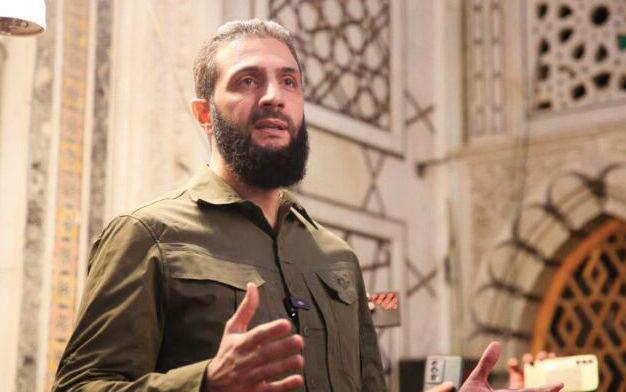
T“We have seen over the years any number of groups who have seized power who have promised that they would respect minorities, who have promised that they would respect religious freedom, promised that they would govern in an inclusive way, and then see them fail to meet those promises ” State
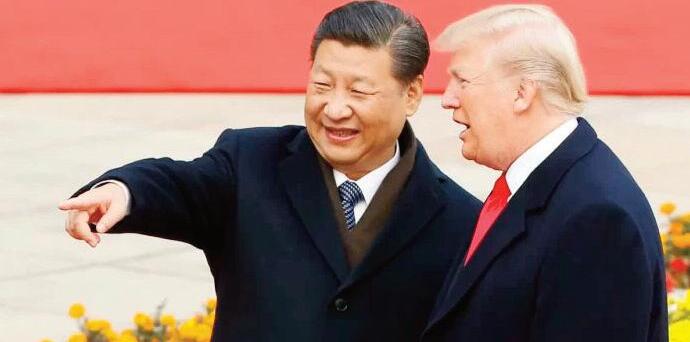
he is treated by world leaders as an incumbent French President Emmanuel Macron was the first leader to host Trump overseas since the 2024 election, with several other high-profile figures, including Ukrainian President Volodymyr Zelensky and Italy’s Prime Minister Giorgia Meloni also in attendance
UN General A ssembly demands immediate G aza ceasefire
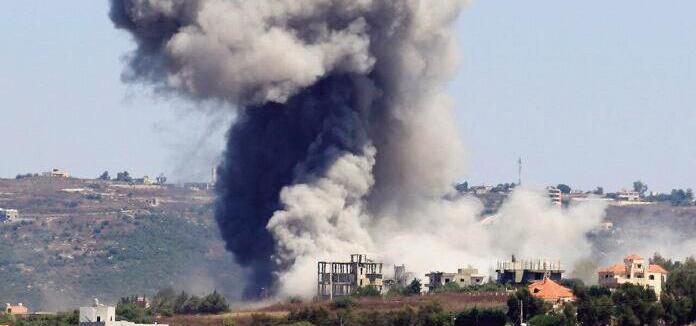
the resolutions included the United States Israel Austria Czech Republic Guatemala Liberia Micronesia Nauru Papua New Guinea and Paraguay The countries that abstained from voting were Argentina, Bulgaria, Cabo Verde, Cameroon, Equatorial Guinea, Georgia Germany Hungary Italy Lithuania Malawi Marshall Islands Netherlands Palau Panama Romania Slovakia South Sudan Togo Tonga Ukraine, United Kingdom, and Uruguay
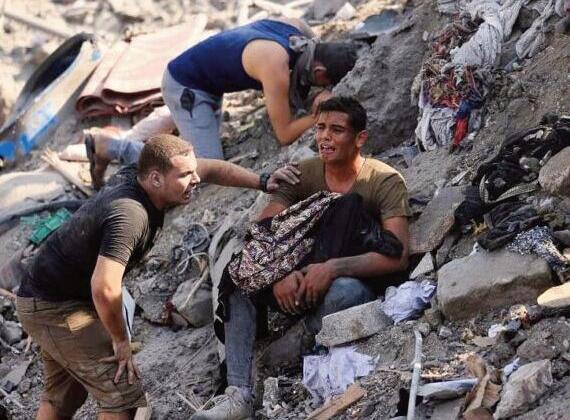

Standing Committee Expresses
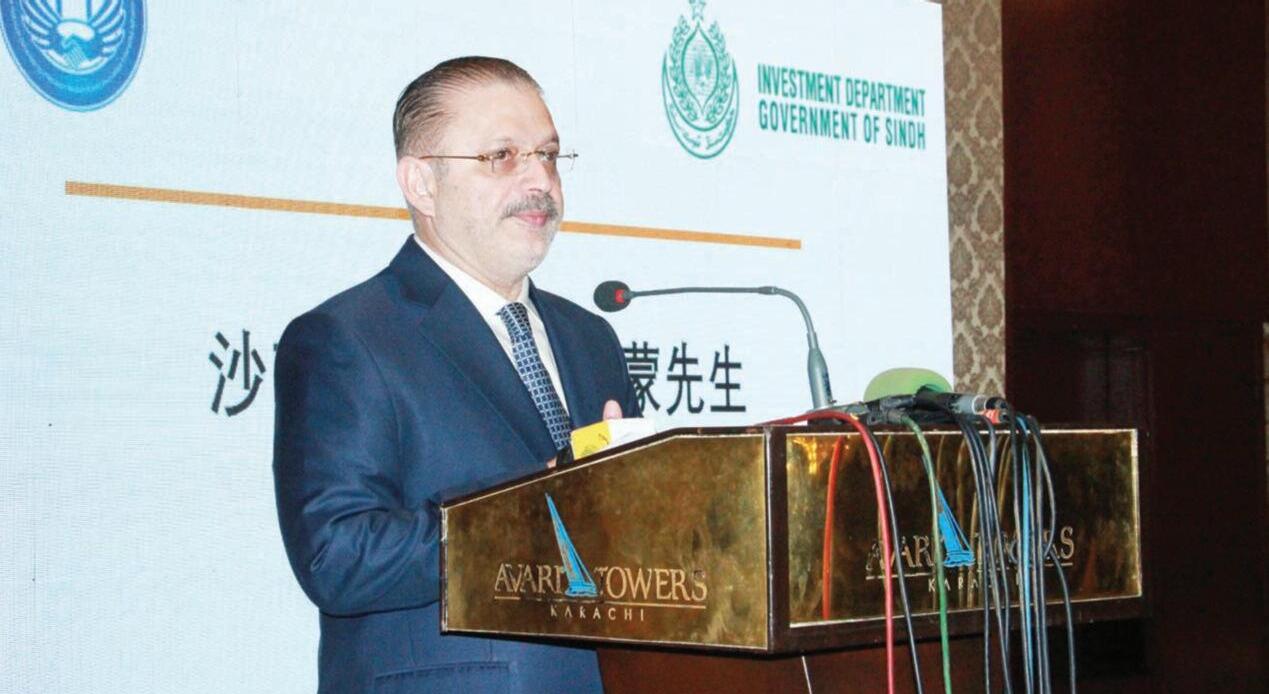
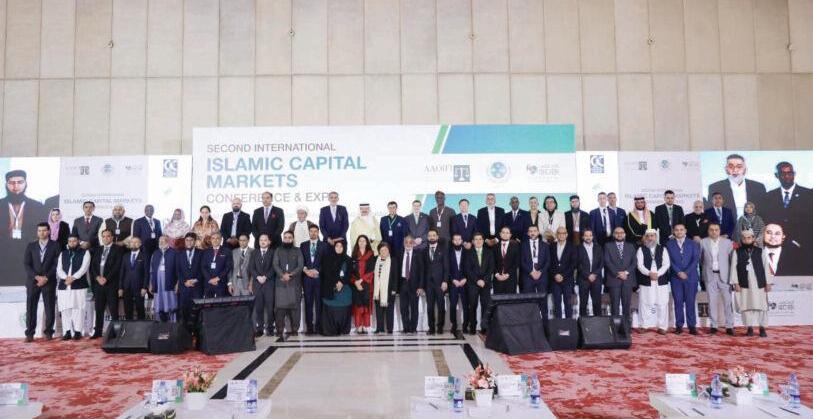
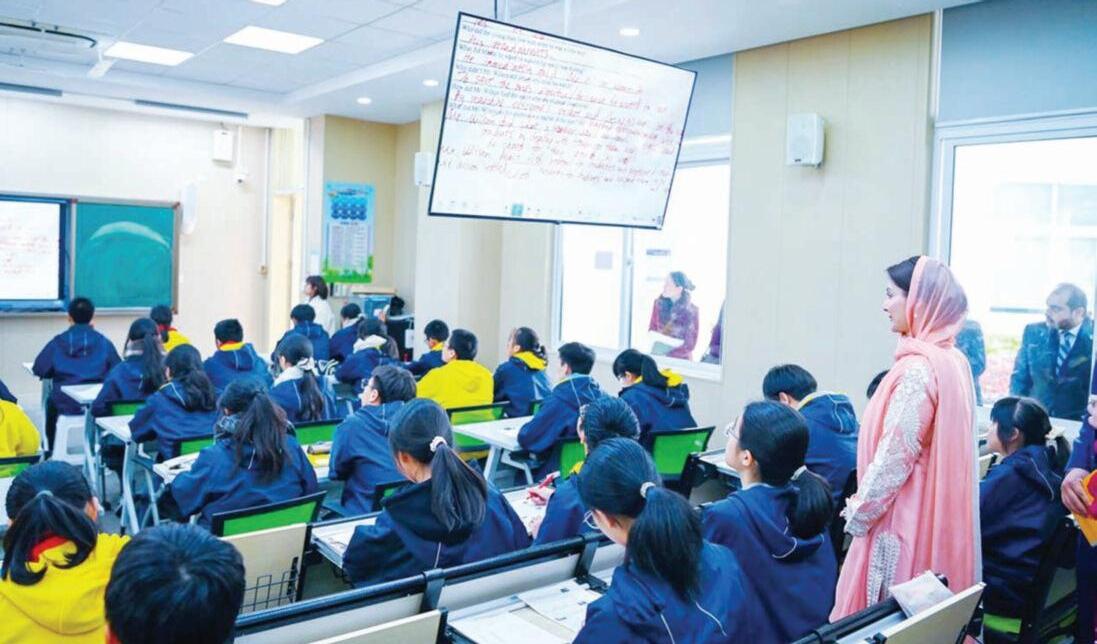
Agricultural Cooperation Takes Center Stage as Tajik Deput y Minister Visits NARC
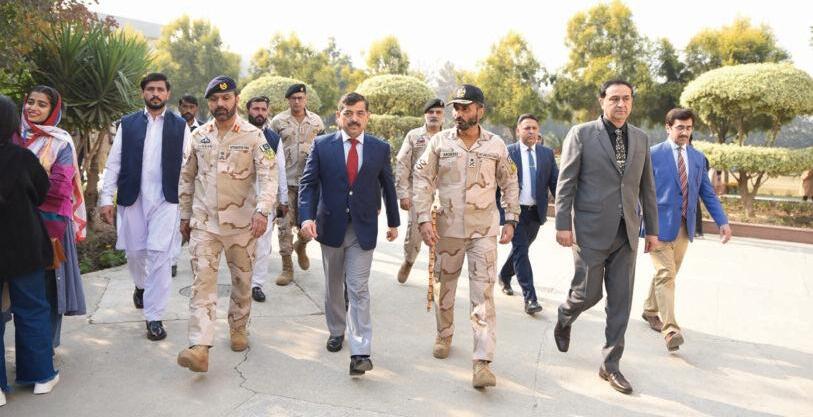
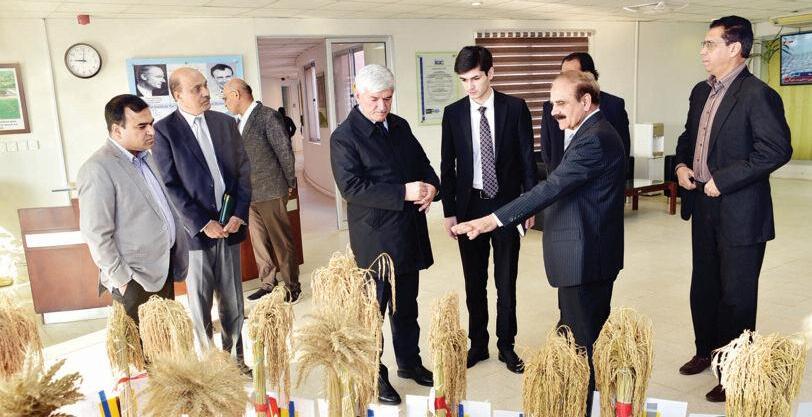
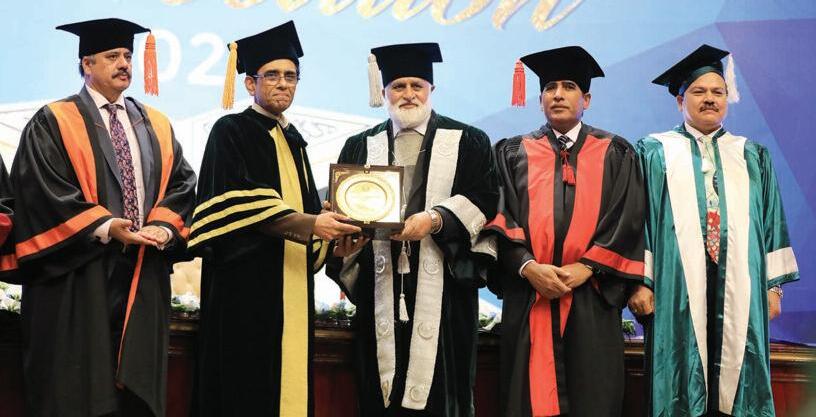
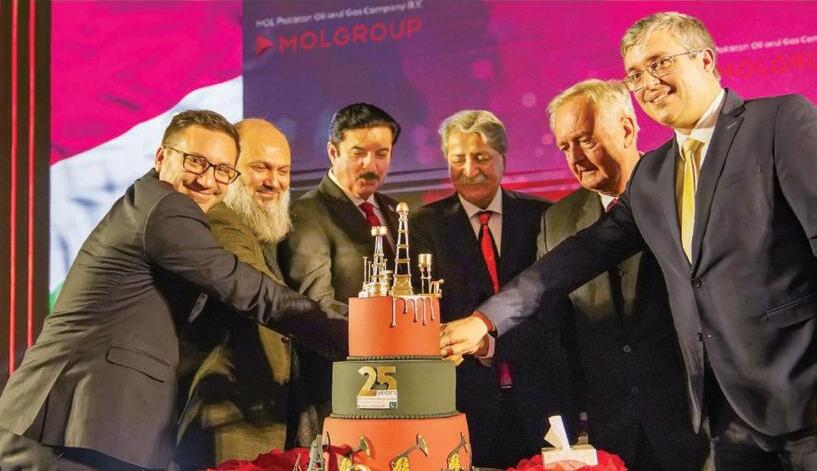
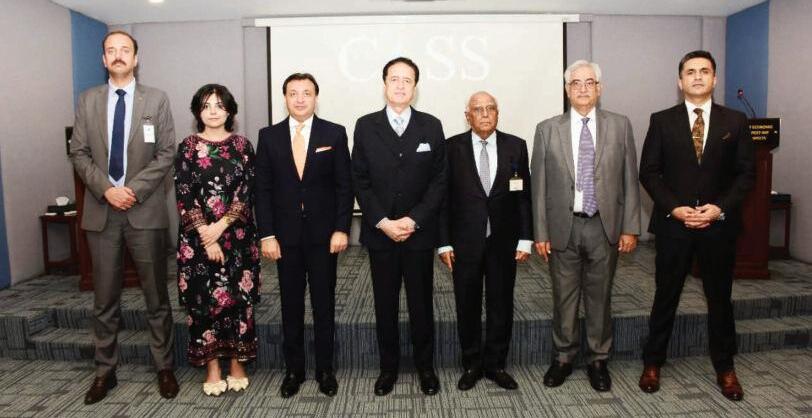
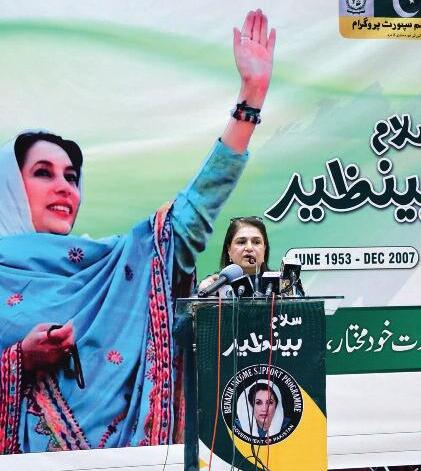

GOHAR SAYS PTI NOT TO SET ANY PRECONDITION FOR TALKS WITH GOVT
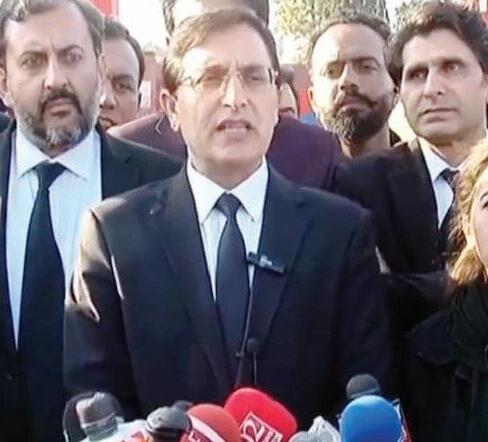
Senator
Islamabad to lead EV transition with charging stations at ever y fuel pump
road network and the elevated price of EVs
Over the past year, fewer than 600 EVs were sold nationwide, with Japanese automakers yet to fully enter the market According to the Ministry of Industries and Production the government is taking major steps to implement its EV policy, starting with the installation of charging stations across Islamabad’s petrol pumps
at every fuel station in Islamabad, positioning the capital as a model city for EV readiness The impact of this initiative remains to be seen, as automotive companies producing EVs have yet to witness significant demand Industry insiders point to several barriers including insufficient charging infrastructure, high electricity costs, an underdeveloped
During the fourth meeting on the EV Policy chaired by Federal Minister Rana Tanveer Hussain progress on various initiatives was reviewed The minister directed the Capital Development Authority (CDA) to ensure that charging facilities are installed at all petrol stations in Islamabad He also lauded the
commenting on the matter, the court remarked, He is a former president; do the institutions believe he might commit murder? Such respect should be accorded to him ” The hearing was adjourned until December 19 In an informal conversation former President Arif Alvi expressed his gratitude to the judges,

noting that when they review a case they do so very meticulously The judges in a lighthearted remark said that the institutions believe the former president might commit murder Arif Alvi stated that in the current situation senior individuals who could play a role are not being respected by juniors He pointed out If they don t respect their own soldiers, how can we expect respect from them?
Regarding the case of Faiz Hameed, Arif Alvi mentioned that only Faiz Hameed knows the details but he acknowledged that it is a good thing that a case is being pursued against him for his involvement in politics
